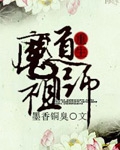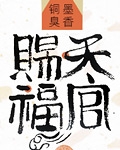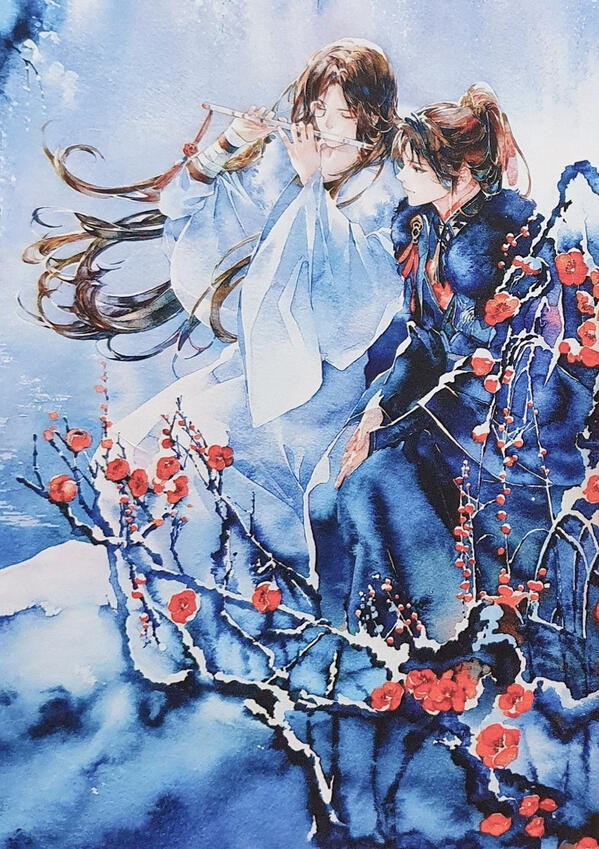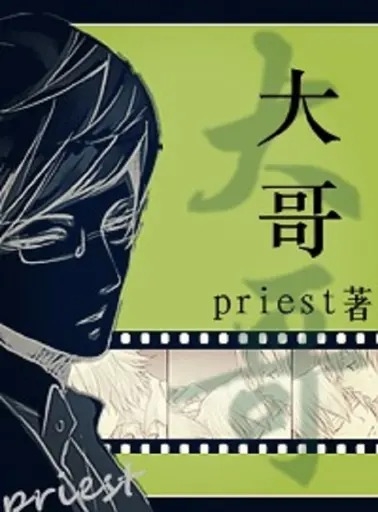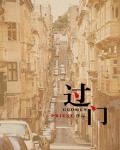Volume 1: A Bright Future Chapter 1: The Taste of a Mother
Cheng Qian is ten years old in age, but he is growing slowly and cannot keep up with his age.
As the sun was approaching zenith, he carried firewood from the courtyard gate into the main room. It was a bit hard for him to carry the whole bundle of firewood, so he had to run back and forth twice. Only then did he wipe the sweat off his forehead and concentrate on lighting the fire and cooking.
There were guests at home these days, and his father was busy entertaining them. All matters such as washing vegetables, cooking, making fire and chopping wood fell on Cheng Qian's shoulders, making him as busy as a short-legged top, and a gust of exhaustion could blow up at any time and anywhere.
Because he was too short, although Cheng Qian was able to reach the stove, it was still a little inconvenient for him to operate the big pot, so he found a small stool from the corner of the main room and stood on it.
The four legs of the stool are of different lengths and are placed inside and outside. Cheng Qian learned to cook on the stool since he was six years old. After nearly falling into the pot and becoming human soup countless times, he learned how to coexist peacefully with this uneven footstool and maintain a precarious balance.
That day, when he was standing on a small stool adding water to the big pot, his eldest brother came back.
The eldest brother of the Cheng family was already fifteen years old, a grown man. He walked into the hall silently, smelling of sweat, and glanced around. Then he lifted his younger brother off the stool with one hand, pushed him on the back without any effort, and said in a muffled voice: "I'll do it, you go play."
Of course Cheng Qian would not go out to play so heartlessly. He called "big brother" obediently, then squatted quietly aside, grunting and pulling the bellows.
Cheng Dalang looked down at him and said nothing, but his eyes were a little complicated.
The Cheng family had three sons, and Cheng Qian was the second. Until the night before, before the guest arrived, Cheng Qian was still called "Cheng Erlang".
Dalang knew that the name "Erlang" might have reached its limit, and that this simple nickname, along with his second brother, would have to be changed and travel far away.
The guest who came the afternoon before was a Taoist priest. His surname was unknown, and he shamelessly called himself "Muchun Zhenren". However, judging from his appearance, it seemed that he did not have any real abilities. He had a sparse goatee, a pair of triangular eyes that were half open and half closed, and a pair of thin legs revealed under his flowing robe. He did not look like an immortal at all, but rather like a swindling fortune teller.
The immortal was passing by this place during his travels and came to ask for a bowl of water to drink, but he unexpectedly met Cheng Erlang.
Cheng Erlang had just returned from outside at that time - there was an old scholar at the entrance of the village who had failed the imperial examinations for a long time. He accepted students to teach them. The old scholar's knowledge was very poor, but he collected tuition fees very generously. He did not like farmers' bacon, fruits and vegetables, and was only willing to accept real gold and silver from Kong Fangxiong, and the amount was not fixed - every time he spent all the money, he would ask the students for more.
As a person, he is really not qualified to teach and interpret the books of sages, but there is no other way. It is not easy for children in the countryside to go to school, and there is no other teacher who can teach within dozens of miles.
Given the financial situation of the Cheng family, there was certainly no spare money for their sons to send them to school. However, those obscure and difficult topics seemed to have some kind of strange attraction to Cheng Erlang. He could not go openly, so he had to eavesdrop from time to time.
The old scholar felt that every drop of his speech was the product of his painstaking efforts and he did not want others to listen to him in vain, so he would often come out to check vigilantly in the middle of his speech.
Cheng Erlang had no choice but to transform himself into a monkey and hide in the big locust tree at the gate of the old student's house. Every time he eavesdropped, he would break into a sweat as he listened to the words "cultivate oneself, manage the family, and bring peace to the world".
Last night, Cheng Erlang was sweating profusely and, driven by his father, brought a bowl of water to the guest. However, the strange guest did not take it. Instead, he stretched out a hand as thin as a cold branch, and without touching the bones or performing any strange exercises, he gently turned Erlang's face and looked into the eyes of the child who was trying hard to imitate the "scholar's pedantry".
I don't know what the real person saw from this look, but after reading it, he nodded mysteriously and said to the Cheng family in a serious tone: "I think this boy has excellent talent. He may be able to soar to the sky and dive into the abyss in the future. He may have great fortune and is not an ordinary person."
When the immortal said this, Dalang was also present. Dalang had been following the shopkeeper's apprentice outside and had met some people who came and went. He felt that he had some experience, but he had never heard of anyone being able to tell a person's aptitude with just a single glance.
Dalang was about to refute this charlatan with contempt, but before he could open his mouth, he found that his father had actually listened to his nonsense, and he immediately understood what was going on with a shudder of fear.
The Cheng family was not well-off to begin with, and his mother gave birth to a younger brother a few years ago. The birth of the younger brother was difficult, and his mother was too weak to get out of bed after giving birth. As a result, the family lost a strong laborer who could work, and gained a sick person who had to take medicine all day long. The family was not well-off to begin with, and it became even more stretched.
The weather is not good this year. There hasn’t been a drop of rain for several months. It seems that there will be a famine with no harvest at all. I am afraid that I can’t support the three brothers.
Dalang knew what his parents were thinking. He had been an apprentice for a year and a half, and in another year and a half, he would be able to make a profit for his family. He was the Cheng family's future hope, and his younger brother was still in his infancy. Naturally, his parents would not be willing to give him up. Only Erlang was left in the middle, who was completely redundant and of no use. If he could be sent to a passing Taoist priest to lead him to practice Taoism, that would be a good place for him to go.
If he succeeds, it's just good luck that the grass grows on the grave of the old Cheng family. If he fails, it doesn't matter. Let him follow others, either wandering around or cheating people. As long as he has enough food to eat and can grow up, it will be a way out.
After some exchanges, Master Mu Chun and the short-sighted head of the Cheng family quickly agreed on the "deal". Master Mu Chun left behind an ingot of silver. They exchanged the money with one hand and the person with the other. From then on, Cheng Erlang changed his name to Cheng Qian. That afternoon, he would cut off his worldly ties and set off with his master.
Dalang is a few years younger than his second brother, and they don't have much to say to each other and are not very close. However, the second brother has been sensible since he was young. He never cries or makes a fuss, and never causes trouble. He picks up clothes left over by his eldest brother, and gives food and drink to his younger brother and sick mother. He always takes the lead in doing work and never complains.
Although Dalang didn't say it, he loved his younger brother in his heart.
But there was nothing he could do. His family was poor and could not afford to support him. It was not yet time for the eldest son of the Cheng family to set up his own household. So, no matter how big or small the matter was, his words had no effect.
No matter what, they are still your own flesh and blood. Can you just sell them?
The more Dalang thought about it, the more upset he felt. He wanted to use a large iron spoon to hit the old swindler on the forehead and make a hole in it, but after thinking it over, he didn't dare to do it. After all, if he really had the courage to do it, he wouldn't have to be an apprentice and work as a waiter. Wouldn't it be more profitable to rob houses?
Cheng Qian was not completely ignorant of his parents' plans and his elder brother's frustration.
He was not precocious and could not be compared with those child prodigies who could compose poems at the age of seven or become prime minister at the age of thirteen. He was just an average-looking person.
His father got up early and went to bed late, while his elder brother worked day and night. In his mother's eyes, if she let go of his elder and younger brothers, she could not let go of him. Therefore, in the Cheng family, although no one beat or scolded him, no one took him seriously. Cheng Qian knew all this very well. He was also naturally tactful and tried not to be noisy and annoying. The most outrageous thing he had ever done in his life was to climb the big tree of an old scholar and listen to a lot of nonsense from sage books.
He worked diligently and conscientiously, treating himself as a waiter, a farmhand, and a servant - just not as a son.
Cheng Qian doesn't really know what it feels like to be a son.
Children are supposed to be talkative and jump around, but since Cheng Qian is not a son, he naturally does not have the privilege of being talkative and naughty. He has things in his mind, but he holds them in. As time goes by, he cannot let his words out, so he has to turn them inward, which makes his little chest full of potholes and holes.
Cheng Qian, who was worried about rain hitting the beach, knew that his parents were selling him out, but he felt strangely calm in his heart, as if he had expected such a day to come.
Before leaving, Cheng Qian's sickly mother got out of bed for the first time, tremblingly called him aside, and with red eyes stuffed a small package into his hand, which contained a few sets of clothes and a batch of flatbreads. Needless to say, the clothes were still those that his eldest brother could wear and could not be altered, and the flatbreads were made by his father at noon the day before.
After all, it was his own flesh and blood. Looking at him, his mother couldn't help but put her hand into her sleeve and took something out. Cheng Qian saw her tremblingly taking out a bunch of copper coins. The bumpy and dark-colored copper coins suddenly touched Cheng Qian's cold heartstrings. He was like a frozen little animal, raising his nose in the snow and smelling a little of his mother's scent.
But the 100 yuan bill was also seen by his father. The man beside him coughed heavily, and his mother had to put the 100 yuan bill back in her pocket with tears in her eyes.
Thus, the scent of mother was like a mirage in the water, which vanished again before Cheng Qian could get a clear whiff of it.
"Erlang, come here," his boring mother pulled Cheng Qian's hand and led him to the inner room. After walking only two steps, he began to pant.
She tiredly found a wide bench to sit down, pointed at the small oil lamp hanging on the roof, and asked weakly: "Erlang, do you know what that is?"
Cheng Qian looked up indifferently and said, "The immortal's ever-bright lamp."
This unremarkable little lamp is a family heirloom of the Cheng family. It is said to be the dowry of Cheng Qian's great-grandmother. It is the size of a palm, has no wick, and does not require lamp oil. There are a few lines of talismans engraved on the rustic ebony base. It can glow by itself and illuminate the one-foot square area for a long time.
But Cheng Qian couldn't figure it out. What other use was this broken thing hanging here, other than attracting bugs in the summer?
But since it is a magical weapon, it does not need to have any practical use. As long as it can be taken out and shown off when neighbors come to visit, for the country folk, it is a treasure that can be passed down from generation to generation.
The so-called "immortal artifacts" are things that have talismans engraved by "immortals", which ordinary people cannot imitate. There are many types of immortal artifacts, and their uses are even more varied. There are lamps that do not need oil, paper that is not afraid of fire, beds that are warm in winter and cool in summer, and so on.
In the past, there was a wandering storyteller who came to the entrance of the village. He said that in the prosperous big city, there were houses built with "immortal bricks". In the sunlight, they looked like glazed roofs and were as magnificent as an imperial palace. The bowls used by wealthy families had a layer of talismans written by high-level immortals on the outside, which could ward off all poisons and cure all diseases. A broken piece of a bowl cost four taels of gold, but people still sought after them.
"Immortal" means "a person who practices Taoism", also known as "Taoist" or "immortal" - the former is usually a self-proclaimed term, which sounds a little more humble.
It is said that they start by drawing air into the body and communicating with heaven and earth. If they have reached a higher level of cultivation, they can even go without food, go to heaven and into the earth, and even achieve immortality and overcome disasters to become immortals... Various legends are widely circulated, but no one has ever seen how many noses and eyes a real immortal has, they just sound magical.
The whereabouts of immortals are elusive, and good immortal weapons are even more rare and valuable, so dignitaries flock to them.
The Cheng family's wife leaned over, looked at Cheng Qian earnestly, and asked in a flattering voice, "When Erlang returns from his studies, can you make a perpetual lamp for me?"
Cheng Qian did not answer, but just lifted his eyelids to look at her, thinking coldly in his heart: "You wish, you send me out today, no matter whether I succeed in my studies or not, whether I live or die, whether I am a pig or a dog, I will never come back to see you again."
Mrs. Cheng was startled for a moment. She found that the child did not look like his parents, but rather resembled her eldest brother from her mother's family.
Her eldest brother was the small piece of green smoke rising from her family's ancestral grave. He did not look like a farmer's boy since he was a child. He had a handsome face. His parents spent all their money to support his studies. He worked hard and passed the examination to become a scholar at the age of eleven. People said that her family was blessed with a literary star.
However, Wenquxing probably did not want to stay in the human world for long, and he died of illness before he could pass the imperial examination.
When the eldest brother died, Mrs. Cheng was still young, and some of her impressions were already vague. Now, when she suddenly recalled it, it was the same when that man was alive. No matter whether he was overjoyed or furious, he would just glance at her nonchalantly, reserved and expressionless, which made people feel intimidated and it was impossible to get close to her.
Mrs. Cheng couldn't help but let go of Cheng Qian's hand, and at the same time, Cheng Qian took a half step back without leaving a trace.
Just like that, he gently and silently put an abrupt end to the separation of mother and son.
Cheng Qian believed that his actions were not out of resentment, and resentment was unreasonable - his parents had given birth to him and raised him, and even if their kindness was abandoned halfway and they didn't want him after raising him halfway, then at best their merits and demerits would offset each other.
He looked down at his toes and said to himself, it didn't matter that his parents didn't care about him, and it didn't matter that they sold him to a Taoist priest with triangular eyes.

